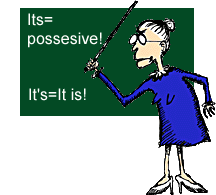English 216, Literature,
Technology, and Society: Invented Worlds
Spring 2008, T/TH 3:45-5:00 Ryland 205
Dr.
Joe Essid
Writing Center 9c 289-8935 or jessid@richmond.edu
Office Hours: M & TH 10-11 and by appointment
Essid's Rhetorical and Grammatical Pet Peeves
Despite its name, this list is not that unique. The list may be unusual in that I have published it; most writers learn about their professors' likes and dislikes through the hard knocks of getting a marked paper back. Poor grammar and carelessness with an argument are not deadly flaws, but you'd be wise to learn to avoid them now and break bad habits that high-school teachers let slide, even rewarded. As Nietzsche might advise you, such slips of the pen are "the reason for much that was bad and calamitous--foolishness, not sin! do you grasp that?" (Genealogy of Morals 94).
 I
am no grammatical purist; even careful writers will make occasional mistakes.
That said, each item below reflects the tastes of other faculty members
with whom I have spoken or who send students to the Writing Center. For
those reasons, most of what appears here will help you in other classes.
No paper with any
of these errors will earn a grade of "A"
in my classes. Multiple errors may reduce the final grade even more.
I
am no grammatical purist; even careful writers will make occasional mistakes.
That said, each item below reflects the tastes of other faculty members
with whom I have spoken or who send students to the Writing Center. For
those reasons, most of what appears here will help you in other classes.
No paper with any
of these errors will earn a grade of "A"
in my classes. Multiple errors may reduce the final grade even more.
A GIGANTIC hint: Read your final draft ALOUD. You will be surprised by the number of errors you catch! If you are still unsure about your work, have a friend read it aloud to you. If people call you a dork for doing this, kick them hard, repeat until they shut up, then continue reading aloud.
Rhetorical Issues:
 Unsupported
Assertions: Perhaps the biggest mistake
that you could make in writing for me. No, I do not expect you to cite
every possible source and datum for an assertion. Just be forewarned that
your unsupported opinion is not welcome while writing for me, unless an
assignment asks for that.
Unsupported
Assertions: Perhaps the biggest mistake
that you could make in writing for me. No, I do not expect you to cite
every possible source and datum for an assertion. Just be forewarned that
your unsupported opinion is not welcome while writing for me, unless an
assignment asks for that.
Plot Summary: A curse in Core and literature classes. Your audience--the teacher and the other students in class--know the stories in the reading. That said, many students think that summary is analysis--not so. Read the page on analysis in Writer's Web to review this idea.
Structure and Organization:
The "Dictionary" Intro:
Most college teachers have read, and gnashed their teeth over, papers
that begin "Webster's defines X as. . . ." This is a pit into which many
freshman writers stumble. Please do not write this way in college.
It was a handy tactic in high school, but it is as rotten as Noah Webster's
cadaver now. It drives most college professors insane (you may enjoy this...).
"Webster's defines X as. . . ." This is a pit into which many
freshman writers stumble. Please do not write this way in college.
It was a handy tactic in high school, but it is as rotten as Noah Webster's
cadaver now. It drives most college professors insane (you may enjoy this...).
The "March of History" Intro: Almost as rotten--avoid any papers that begin with crap such as "Humans have always recognized..." or "In history's panorama, one truth is. . ." or "In the textures that make up the tapestry of English Literature. . . ." Dr. Zaius spoke that way when he read from the Sacred Scrolls in (the original and far superior) Planet of the Apes. These types of introductions work in epic film, but not in college essays. Cut them and cut to the chase, please.
Imprecise Language:
 "Center
Around": That should be "center
on." Think about the verb "center" for a moment. Things
"circle around" or "revolve around" or even "cluster
around." But "center" implies a center point, even when
we talk about a general area such as "the center of town."
"Center
Around": That should be "center
on." Think about the verb "center" for a moment. Things
"circle around" or "revolve around" or even "cluster
around." But "center" implies a center point, even when
we talk about a general area such as "the center of town."
"Irregardless": Please use "regardless." Think about what "irregular" and"irrational" mean. "Regardless" already means "without regard to": "irregardless," by its nature, is redundant.
Misused Words: Don't let the list on the Web overwhelm you, but I will mark these words and teach you how to use them correctly. Repeated misuse after we work on these problems will lower paper grades.
Novel: A "novel" is an extended work of fiction, usually book-length. Calling a nonfiction book, short story, play or poem a "novel" will lose you a full +/- on a paper or exam. I'm serious; misusing the term makes the writer sound like an idiot, not a college student.
Stylistic Gaffs:
 Overused
Words and Phrases: A faculty
mentor once told me to stop using the verb "posit." Do you have
any well-worn phrases that you love? There is no hard-and-fast rule, but
vary your language!
Overused
Words and Phrases: A faculty
mentor once told me to stop using the verb "posit." Do you have
any well-worn phrases that you love? There is no hard-and-fast rule, but
vary your language!
Thesaurus-Speak and Cliches: If you think that you can vary your language by finding synonyms in a thesaurus, be careful. If you really understand how to use the synonym in context, this method can actually expand your vocabulary. If not, you end up with this:
Original: "The novel has a lantern-jawed, two-fisted protagonist, Buck Buckaw. This man's man of a protagonist must overcome the difficulties of life in Alaska. This wild region challenges the protagonist until he reaches his wit's end."
Thesaurus-Speak: "The novel has a male lead, Buck Buckaw, who. . ."
If we were talking about a film, the substitution might work. Since the work under discussion is a novel, "male lead" is not an acceptable term.
Better Revision: "The novel's protagonist, Buck Buckaw, must overcome the difficulties of life in Alaska. Despite the hero's great strength and courage, the wild region challenges him until, finally, he snaps."
I not only revised the referent to Buck, but I also removed the comic-book descriptions of Buck (a host of moldy cliches) from both sentences.
More reading about cliches
Careless, Silly, or Utterly Avoidable:
 "It's,
Its": Mrs. Grundy would
clobber you for this. So will I. I do not care if I lose this battle,
but I will stand my ground until someone invents a better rule. "It's"
means "it is" while "its" is the possessive form of
"it." It's quite easy to put the correct word in its place,
once you have the hang of it. Got it?
"It's,
Its": Mrs. Grundy would
clobber you for this. So will I. I do not care if I lose this battle,
but I will stand my ground until someone invents a better rule. "It's"
means "it is" while "its" is the possessive form of
"it." It's quite easy to put the correct word in its place,
once you have the hang of it. Got it?
"Their, They're, and There": Just remembering "here and there" will keep you out of most trouble. "They're" means "they are" and "their" is the possessive form of "they."
"-wise" Suffix: Why do the bubble-heads on TV say "Weatherwise, we're going to have a hot day"? Why does the car dealer tell you "Pricewise, this 9000 SUX is the best buy on the market"? Although I would enjoy watching many newscasters being lashed on television, there is a plausible reason for these abominations: the need to compress language to fit into a script or into advertising copy. This usage is not grammatically incorrect, since language can change to accommodate it. The usage is, however, too informal and too cliched for academic writing. Avoid it like the Bubonic Plague.
Subject/Verb Agreement Errors: Read your sentences carefully. Usually the subject gets too far from the verb because prepositional phrases intervene: "The author's treatment of grammatical skills bore the general reader." That should be "bores," but the verb has gotten far from the subject, "treatment".
More reading about subject-verb agreement
Misspelling
the Names of People and the Titles of Books.
This is a terrible mistake; how many of you would like to see your own name misspelled in a publication? All you need to do to
avoid this problem, when writing papers for me, is to SLOW
DOWN. Check the sources
you use to get the authors' names correct (your spell check is not going
to help, here). The titles of the works are very important, too. Reproduce
them exactly.
to see your own name misspelled in a publication? All you need to do to
avoid this problem, when writing papers for me, is to SLOW
DOWN. Check the sources
you use to get the authors' names correct (your spell check is not going
to help, here). The titles of the works are very important, too. Reproduce
them exactly.
"Gendered" Language: Guys, get over it. I'm not trying to be Mr. "Politically Correct" here, but it irks me to always see the singular pronoun as "he" or "his." You smirk, but wait until you write a cover letter one day--I dare you to begin with "Dear Sirs." Since the world has changed, here is how to avoid gendering your work: make things plural whenever you can. "Students should research their options before choosing a college or university" works just as well, and is more inclusive than "A student should research his options before choosing a college or university." If you cannot figure out a clever way to do this, rewrite the sentence.
Incomplete Sentences, a.k.a. "fragments": Sometimes these can be used for dramatic effect: "An hour passed. Passed slowly as melting butter. The cop yawned. Slow day, he thought. He did not see the shadow at the door."
Most of the time, however, all sentences in academic prose need a subject and predicate. Simply put, do not use fragments. If a sentence does not sound right, all by itself, when read aloud, it needs fixing. Here is the test: how would you feel if someone walked up to you, said "passed slowly," then walked away without another word? See the Writer's Web page on the topic for more information.
Comma Errors: "Comma Splices" occur whenever a comma either fuses two complete sentences without a connecting word or fuses a complete and an incomplete sentence. Another comma error occurs when a writer omits the pause after an introduction (second example) and this fumbles the meaning of the sentence.
Example 1: "It is a big car, there is room for everyone."
- Revisions: "It is a big car; there is room for everyone." or "It is a big car, so there is room for everyone."
- Example 2: "While we were out driving a tank crossed the road."
- Revisions: "While we were out driving, a tank crossed the road." or "A tank crossed the road while we were out driving." (it is clear to the reader what you were driving!)
- More reading about comma usage
- Home | Schedule | Policies | Assignments | WikiSpaces Site